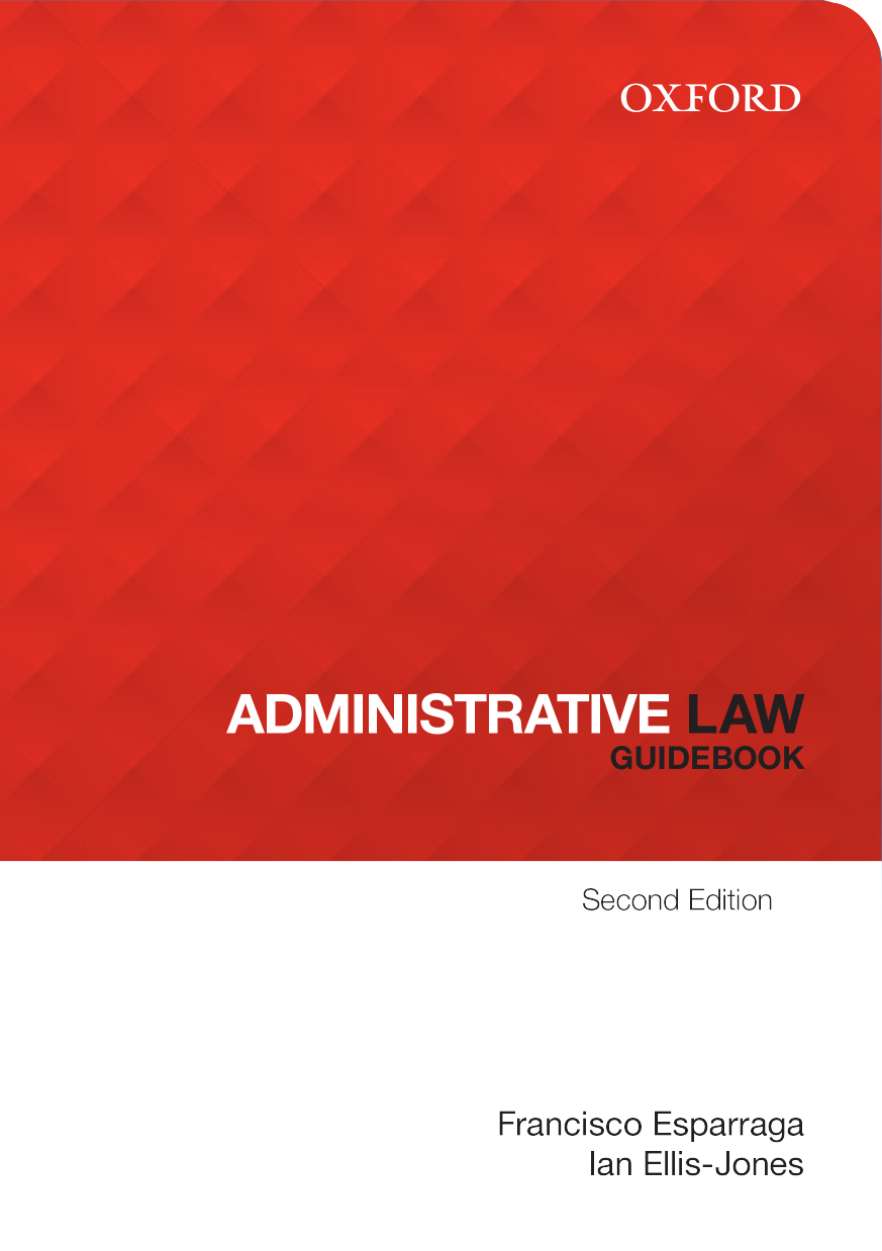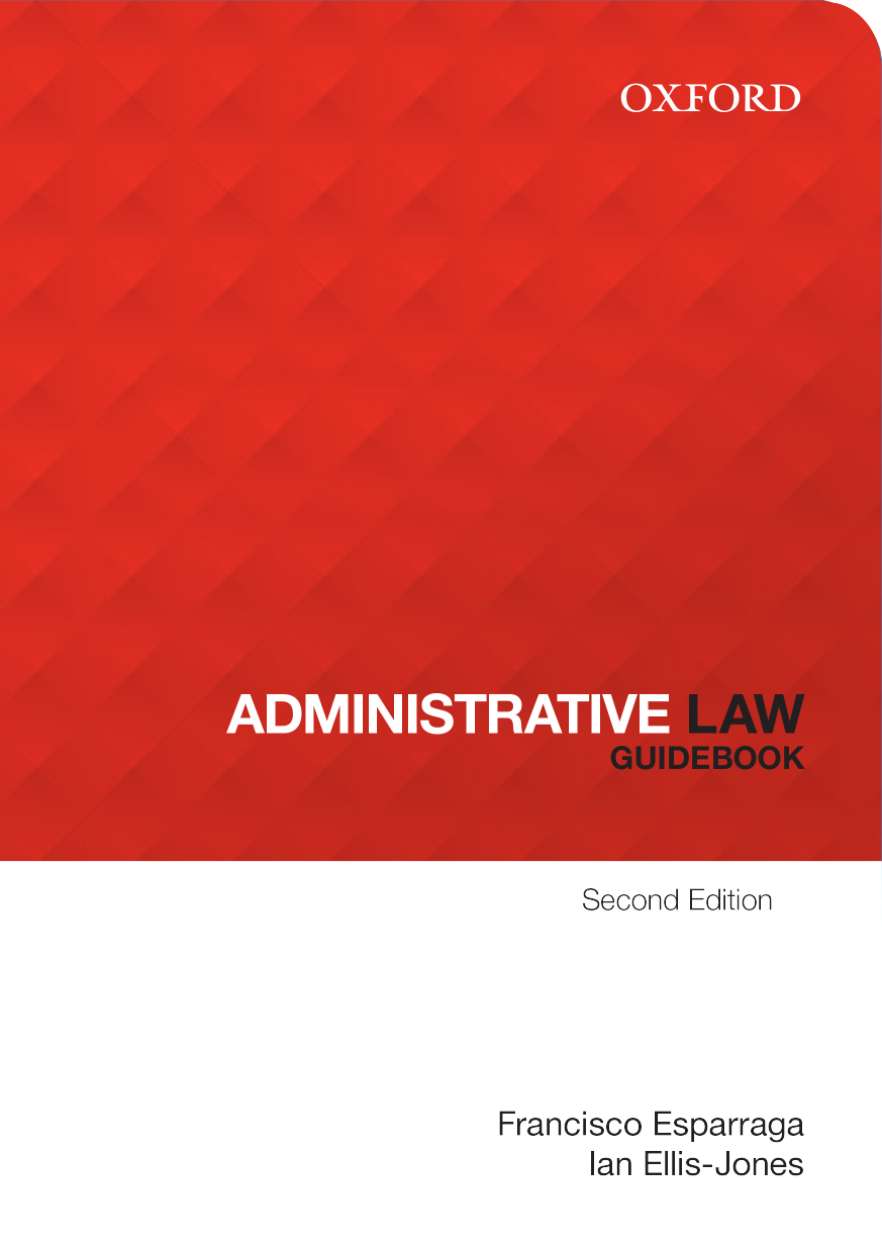Administrative Law GuideBook eBook

Administrative Law GuideBook eBook
|
ISBN: |
9780190304058 |
|
Binding: |
Ebook |
|
Published: |
15 Apr 2016 |
|
Availability: |
Available
|
|
Series: |
$44.95 AUD
$51.99 NZD
Add To CartOther options: Paperback $50.95 AUD $57.99 NZD Ebook Rental $24.95 AUD $28.99 NZD
Request an inspection copyDescription
The Administrative Law Guidebook is your guide to the essentials of administrative law. Learn how to link the key concepts from your lectures, textbooks and tutorials to get the most from your study, improve your knowledge of law and develop legal problem-solving skills.
This guidebook will help you navigate through the fundamental points of administrative law using:
- clear and concise explanations of what you need to know
- cases and statutes to remember
- examples and exercises
- assessment preparation sections
- up-to-date cases and legislation
This ebook version of the Administrative Law Guidebook is available as a 6 month rental option.
Contents
Preface
Acknowledgements
1. Introduction
The scope, nature and content of administrative law
The meaning of the word ‘administrative’
Development of administrative law
Judicial review
‘Red light’ and ‘green light’ approaches
Conclusion
2. Subordinate Legislation
Introduction
Proliferation of subordinate legislation
Making, publication and commencement of statutory rules
Parliamentary review of statutory rules
Senate Standing Committee for the Scrutiny of Bills—Commonwealth
Legislative Instruments Act 2003 (Cth)
Changes to the Legislative Instruments Act 2003 (Cth)
Senate Standing Committee on Regulations and Ordinances—Commonwealth
Judicial review of subordinate legislation
Invalidity of subordinate legislation
The regulation/prohibition distinction
‘As if enacted’ clauses
Severance
Recent developments
3. Merits Review and Tribunals
Introduction
Merits review
What is a tribunal?
Nature and variety of tribunals—merits review and civil claims
Types of tribunals
Diversity of tribunals
The onus of proof
Evidence in tribunals
Tribunals and policy
The inquisitorial approach
Future amalgamation of tribunals
Refugee law amendments
4. Procedural Fairness
Introduction
Rules of procedural fairness
Implication principle
Legitimate expectations
Hearing rule
Bias rule
‘Real likelihood’ or ‘reasonable apprehension’
‘No evidence’ rule
‘Duty’ to initiate inquiries
Recent research findings
5. The Administrative Appeals Tribunal
Introduction
Legal status and jurisdiction of the Tribunal
Organisation
Case management process
Merits review
Meaning of ‘decision’
Role and functions of the Tribunal
Consideration of policy by the Tribunal
Applications for review
Consideration and determination of applications
Decision-making powers of the Tribunal
Reasons for decisions
Appeals from the Tribunal
Streamlined arrangements for external merits review
6. Ultra Vires
Introduction
Simple ultra vires
Extended ultra vires
7. The Administrative Decisions (Judicial Review) Act 1977
Introduction
Jurisdiction
Judicial review under the ADJR Act
Grounds for review
Standing
Reasons for decision
8. Jurisdictional Error and Privative Clauses
Introduction
Ultra vires and jurisdictional error
Errors of law and errors of fact
Errors in fact-finding
Traditional jurisdictional error
Error of law on the face of the record
Extended jurisdictional error
Authors
Francisco Esparraga is a senior lecturer at the University of Notre Dame Australia, School of Law, Sydney.
Ian Ellis-Jones is a lawyer and lecturer at the New South Wales Institute of Psychiatry.
